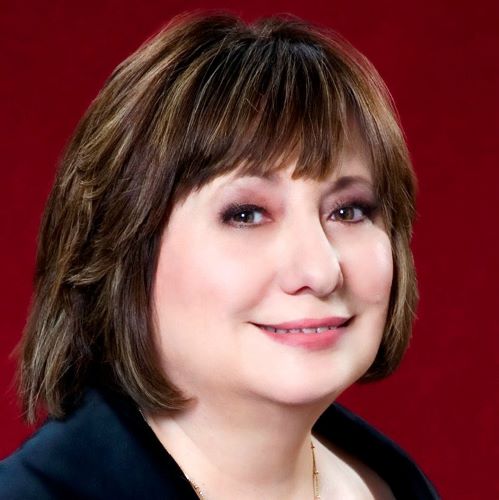Deborah A. Lott studied English Literature and Film at UCLA, where she also received a less formal education in 2nd wave Feminism and political activism. After working in publishing in Boston, MA, she continued her editing career with Peace Press, a collectively organized printer/publisher dedicated to advancing the causes of social justice, Feminism, and environmentalism. Her projects there encompassed learning about the Zen of the piano, eating wild herbs alongside the Los Angeles River, howling with the wolves at Deena Metzger’s, and spending a day with Black Panther pioneer Huey Newton. She went on to serve as a contributing editor to Psychiatric Times, and as Senior Consulting Writer/Editor for the UCLA/Duke University National Center for Child Traumatic Stress.
As a reporter for Psychiatric Times, Lott became fascinated by the dynamics in the psychotherapy room and the privileged language of psychotherapy practice. Lott interviewed several hundred therapy clients and noted therapists about transference and boundary dilemmas in psychotherapy. Her years of research led to her first book, In Session: The Bond Between Women and Their Therapists.
Ms. Lott’s second book, Don’t Go Crazy without Me: A Memoir, is currently being shopped by her agent.
As an Antioch instructor, Lott considers her first obligation to be creating a safe classroom community so students can respond to work freely and authentically. She believes that rigor is essential to academic work, but so is passion. She encourages students to ask those “emperor has no clothes” kind of questions, to interrogate all received wisdom, and to take risks in their own writing. She models very close reading of texts (and films) and critical thinking that always considers the social and economic context of the works. She takes various theoretical approaches to a text and views texts through multiple viewpoints, always aware that every perspective has its blind spots. She is thrilled by Antioch’s innovative and learner-focused approach to undergraduate education. She is inspired by students’ diverse backgrounds, wealth of life experience, and commitment to their own development. She likes to group unexpected readings together and see how they speak to one another. For example, in her Representations of Childhood class, she assigns 19th-century writers like Charles Dickens and Charlotte Bronte, journal articles on child soldiers, and contemporary writers like JoAnn Beard and Bernard Cooper.
BA in English Literature, UCLA. Highest Honors upon graduation. Summa cum laude; Phi Beta Kappa
Training in Publishing Practices, Cambridge, MA Center for Adult Education
MFA, Creative Writing, Antioch University, Los Angeles.
For essays that I’m working on or that will soon be published:
- The biography of Kate Millett, a pioneering 2nd wave feminist and the author of Sexual Politics, among other works.
- The nature of faith, why we believe what we do, the intersection of rationality and irrationality.
- The history of the rest cure, a treatment administered to women in the early 20th century, with usually dire effects.
- Transference and countertransference in the writing classroom.
- Portrayals of trauma in literature.
- For an AWP panel: Endings in creative nonfiction. Do readers require/expect some form of redemption?
Book: In Session: the Bond Between Women and Their Therapists, W.H. Freeman, 1999; Times Books, 2000; digital version forthcoming
Review of Elizabeth Rosner’s Survivor Café, Roar, September 19 2017
My Sexual Politics, Roar, forthcoming
“Vocabulary Lesson,” Blue Mesa Review, May 2016
“My Dream of Androgyny,” the Sunday Rumpus Essay, April 17, 2016
“My Mother’s Lipstick,” Cactus Heart, December 8 2015
“On Not Remembering,” The Nervous Breakdown, January 5, 2015
“Elephant Girl,” Referential, March 21, 2014
Originally anthologized in Open House: Writers Redefine Home; edited by Mark Doty
“The Shortest Distance between Two Points,” Tin House, July 22, 2013
“The Daddy-Cure,” StoryQuarterly, Winter 2014
“Robert F. Kennedy and Me,” The GoodMen Project, June 6 2013
“The Bread of Affliction and the Tyranny of the Sandwich,” The Huffington Post, April 2013
“Mrs. Finch,” Los Angeles Review, Fall 2010
“Looking for An Angle,” Alaska Quarterly Review, Spring 2008
“Family Dictionary: Stuff,” Two Hawks Quarterly Inaugural Issue, August 8, 2007
“School Shoes,” Bellingham Review, May 1, 2007
“Nature Lessons,” Cimarron Review, Winter-Spring 2007
“Waiting for Breakfast,” Black Warrior Review, Spring/Summer 2006
“Glen Haven Asylum,” Bellingham Review, Fall 2005
“Fifteen,” Alaska Quarterly Review, Fall/Winter 2005
“The First Place,” Puerto del Sol, Summer 2004
“Trains,” Alaska Quarterly Review, Fall 2003
“Migraine,” Crazyhorse, Fall 2003
“Kiddie Pants or Kiddie Porn?” Salon, March 12, 1999
“Of Dice and Men,” Lear’s magazine, January 1993
“A Family Sick as Dogs,” Lears, June 1991
Three Pushcart Prize nominations
Shortlisted three times by Best American Essays

